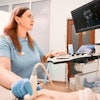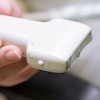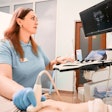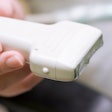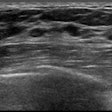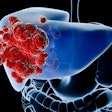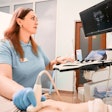Sunday, November 29 | 1:00 p.m.-1:30 p.m. | BR225-SD-SUB3 | Lakeside Learning Center, Station 3
Ultrasound can help predict which lymph nodes will respond to neoadjuvant chemotherapy in women with breast cancer, according to researchers from MD Anderson Cancer Center.During this Sunday poster session, lead researcher Dr. Kyungmin Shin will present findings from a study she and colleagues conducted to assess the features of these nodes before and after treatment. The study included 165 women with biopsy-proven axillary lymph node breast cancer who received neoadjuvant chemotherapy between January 2011 and December 2014.
Of these 165 women, 45% showed a successful response to treatment on histopathology at the time of surgery, while 55% showed persistent metastatic disease.
Lymph nodes that were irregularly shaped or had increased volume or cortical thickness on ultrasound were less likely to respond to chemotherapy, while those with an oval shape and with normal cortical thickening were more likely to respond, the group found.
The results suggest that using ultrasound to distinguish axillary node response to chemotherapy may help clinicians develop tailored, less-invasive surgical approaches for breast cancer that has spread to the lymph nodes.

